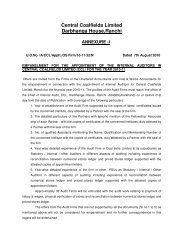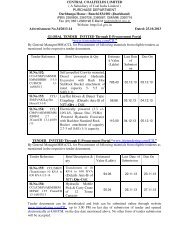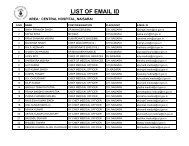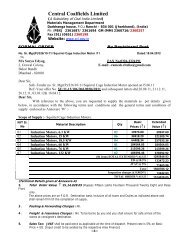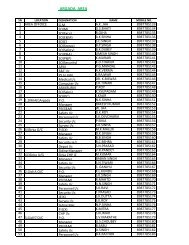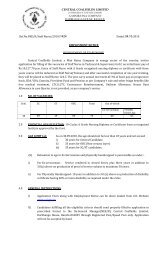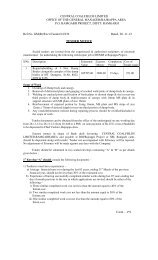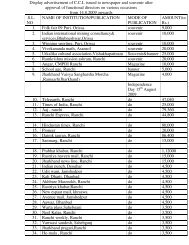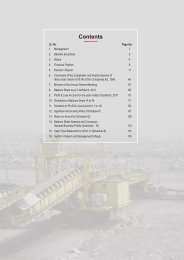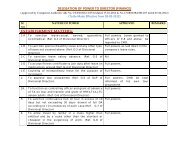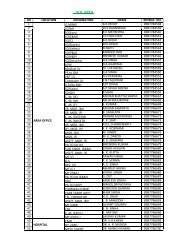Vigilance Compedium - CCL
Vigilance Compedium - CCL
Vigilance Compedium - CCL
Create successful ePaper yourself
Turn your PDF publications into a flip-book with our unique Google optimized e-Paper software.
No.005/CRD/012<br />
Government of India<br />
Central <strong>Vigilance</strong> Commission<br />
Circular No.4/3/07<br />
Subject: Tendering process - negotiations with L-1.<br />
Satarkta Bhawan, Block ‘A’,<br />
GPO Complex, INA,<br />
New Delhi – 110 023<br />
Dated the 3 rd March, 2007<br />
Reference is invited to the Commission’s circulars of even number, dated 25.10.2005<br />
and 3.10.2006, on the above cited subject. In supersession of the instructions<br />
contained therein, the following consolidated instructions are issued with immediate<br />
effect:-<br />
(i)<br />
(ii)<br />
(iii)<br />
As post tender negotiations could often be source of corruption, it is directed<br />
that there should be no post-tender negotiations with L-1, except in certain<br />
exceptional situations. Such exceptional situations would include,<br />
procurement of proprietary items, items with limited sources of supply and<br />
items where there is suspicion of a cartel formation. The justification and<br />
details of such negotiations should be duly recorded and documented without<br />
any loss of time.<br />
In cases where a decision is taken to go for re-tendering due to the<br />
unreasonableness of the quoted rates, but the requirements are urgent and a retender<br />
for the entire requirement would delay the availability of the item, thus<br />
jeopardizing the essential operations, maintenance and safety, negotiations<br />
would be permitted with L-1 bidder(s) for the supply of a bare minimum<br />
quantity. The balance quantity should, however, be procured expeditiously<br />
through a re-tender, following the normal tendering process.<br />
Negotiations should not be allowed to be misused as a tool for bargaining<br />
with L-1 within dubious intentions or lead to delays in decision-making.<br />
Convincing reasons must be recorded by the authority recommending<br />
negotiations. Competent authority should exercise due diligence while<br />
accepting a tender or ordering negotiations or calling for a re-tender and a<br />
definite timeframe should be indicated so that the time taken for according<br />
requisite approvals for the entire process of award of tenders does not exceed<br />
one month from the date of submission of recommendations. In cases where<br />
the proposal is to be approved at higher levels, a maximum of 15 days should<br />
be assigned for clearance at each level. In no case should the overall<br />
timeframe exceed the validity period of the tender and it should be ensured<br />
that tenders are invariably finalized within their validity period.




